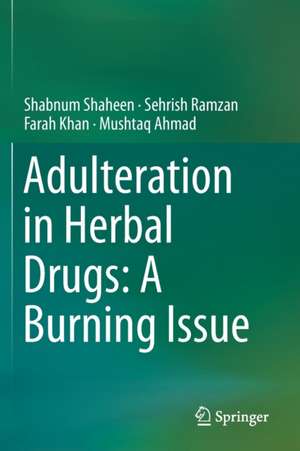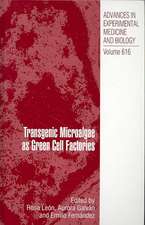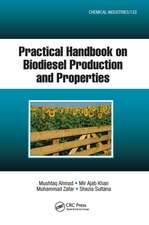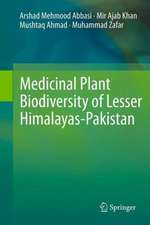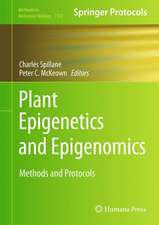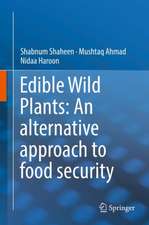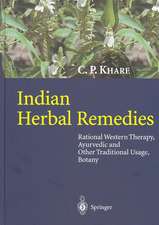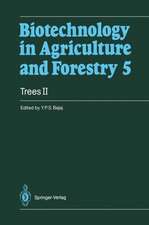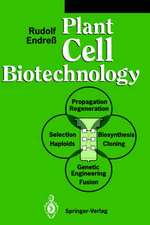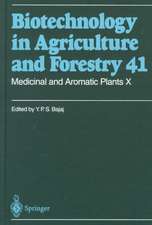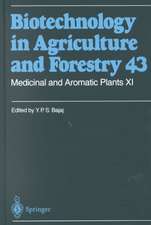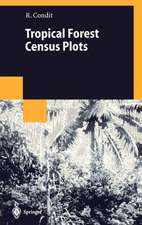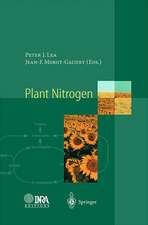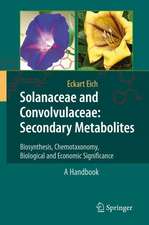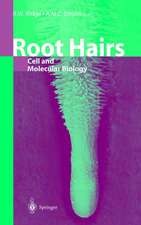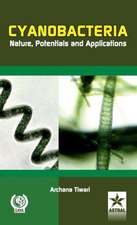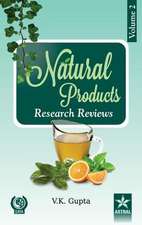Adulteration in Herbal Drugs: A Burning Issue
Autor Shabnum Shaheen, Sehrish Ramzan, Farah Khan, Mushtaq Ahmaden Limba Engleză Paperback – 24 oct 2020
Adulteration In Traditional Medicinal Herbs is aimed at promoting awareness of adulteration in traditional herbal medicines for the worldwide scientific community. Parameters are established for the prevention of adulteration through classical and modern scientific tools. Valuable case studies are presented based on ethno-medicinal surveys performed in many herbal markets in Pakistan. Collections of various samples were obtained from these shops then compared with the original plants collected from field. Various phytochemical, organoleptic and DNA barcoding techniques were used in order to detect adulteration in the marketed herbal samples. This book is the first of its kind and is aimed at helping the scientific community to identify particular medicinal plants which are facing adulteration problems in herbal markets and to estimate the extent of adulteration and substitution in commonly used medicinal herbs.
| Toate formatele și edițiile | Preț | Express |
|---|---|---|
| Paperback (1) | 681.08 lei 6-8 săpt. | |
| Springer International Publishing – 24 oct 2020 | 681.08 lei 6-8 săpt. | |
| Hardback (1) | 930.59 lei 6-8 săpt. | |
| Springer International Publishing – 24 oct 2019 | 930.59 lei 6-8 săpt. |
Preț: 681.08 lei
Preț vechi: 801.28 lei
-15% Nou
Puncte Express: 1022
Preț estimativ în valută:
130.38€ • 134.09$ • 108.17£
130.38€ • 134.09$ • 108.17£
Carte tipărită la comandă
Livrare economică 19 februarie-05 martie
Preluare comenzi: 021 569.72.76
Specificații
ISBN-13: 9783030280369
ISBN-10: 3030280365
Pagini: 179
Ilustrații: XXXI, 179 p. 240 illus., 236 illus. in color.
Dimensiuni: 155 x 235 mm
Greutate: 0.3 kg
Ediția:1st ed. 2019
Editura: Springer International Publishing
Colecția Springer
Locul publicării:Cham, Switzerland
ISBN-10: 3030280365
Pagini: 179
Ilustrații: XXXI, 179 p. 240 illus., 236 illus. in color.
Dimensiuni: 155 x 235 mm
Greutate: 0.3 kg
Ediția:1st ed. 2019
Editura: Springer International Publishing
Colecția Springer
Locul publicării:Cham, Switzerland
Cuprins
CHAPTER 1: Adulteration A Global Issue.- CHAPTER 2: Types and Causes of Adulteration: Global Perspectives.- CHAPTER 3: Why Study Herbal Plants?.- CHAPTER 4: History, Classification, Worldwide Distribution and Significance of Herbal Plants.- CHAPTER 5: Marketed Herbal Drugs: How Adulteration Affects.- CHAPTER 6: Preventive Measures to Stop Adulteration in Marketed Herbal Samples.- CHAPTER 7: Medicinal Wealth of Pakistan.- CHAPTER 8: Marketed Herbal Plants in Pakistan: Case Studies.- CHAPTER 9: List of Commonly used Herbal Drugs throughout the World.- CHAPTER 10: A pictorial guide of marketed herbal plants: Comparison with the original sample.
Notă biografică
Dr. Shabnum Shaheen has completed her Post Doctorate from Malaysia in Biological Sciences. She is awardee of gold medal in an International conference of Botany and also won Farogh-e-Taleem Gold medal award from Idara Farogh-e-Taleem & Federal Minister Kashmir Affairs, Pakistan. She is the first scientist who introduced EDS technique for grass phytoliths in Epidermal Leaf Anatomy in Pakistan. Till yet she has 3 national patents which are submitted in the intellectual property Organization, Government of Pakistan. She is the member of many national and International science societies/journals and also reviewer of many well reputed journals. She is the author of 6 books and published many research articles in national and international journals.
Miss Sehrish Ramzan is a Ph.D scholar in Biological Sciences. She is a plant scientist and her Ph.D work is focused on the adulteration of herbal drugs. Till yet she published 10 research articles in national andinternational journals and member of many societies. Her research interests include biodiversity, systematic, adulteration and medicinal plants.
Dr. Farah Khan did her Post Doctorate from Ohio State University,Columbus,US (2011). She is Professor / Chairperson at Department of Botany,LCWU, Lhr. She is the member of many Research Journal Editorial Boards. So far 62 Research theses including 02 Ph.Ds. have been supervised by her. She has published 52 Research papers in Impact Factored, HEC and UGC recognized International and National journals. She has published 34 Abstracts/Proceedings indifferent International and National conferences and seminars. Thirty one Poster( Research) presentations and 04 Monographs published by international Publishers are also on her record. She has won many awards including a gold medal by IFT,PK.
Dr. Mushtaq Ahmad is Plant Biologist in the field of Biodiversity. He has author of 387 research publications (to date) in top international journals, more than 3000 citations, with high IF, H & I indices. 20 international books published and circulated internationally. Dr. Ahmad is awardee of various national and international awards (TWAS, CAS-PIFI & USEA). He is also the Editorial Board Member of many well reputed ISI journals and book series. He has supervised 13 Ph.D. & 65 M.Phil. research scholars in applied disciplines of Natural plants products, Plant biodiversity, wild edible plants, Medicinal plants, Energy &Environment.
Miss Sehrish Ramzan is a Ph.D scholar in Biological Sciences. She is a plant scientist and her Ph.D work is focused on the adulteration of herbal drugs. Till yet she published 10 research articles in national andinternational journals and member of many societies. Her research interests include biodiversity, systematic, adulteration and medicinal plants.
Dr. Farah Khan did her Post Doctorate from Ohio State University,Columbus,US (2011). She is Professor / Chairperson at Department of Botany,LCWU, Lhr. She is the member of many Research Journal Editorial Boards. So far 62 Research theses including 02 Ph.Ds. have been supervised by her. She has published 52 Research papers in Impact Factored, HEC and UGC recognized International and National journals. She has published 34 Abstracts/Proceedings indifferent International and National conferences and seminars. Thirty one Poster( Research) presentations and 04 Monographs published by international Publishers are also on her record. She has won many awards including a gold medal by IFT,PK.
Dr. Mushtaq Ahmad is Plant Biologist in the field of Biodiversity. He has author of 387 research publications (to date) in top international journals, more than 3000 citations, with high IF, H & I indices. 20 international books published and circulated internationally. Dr. Ahmad is awardee of various national and international awards (TWAS, CAS-PIFI & USEA). He is also the Editorial Board Member of many well reputed ISI journals and book series. He has supervised 13 Ph.D. & 65 M.Phil. research scholars in applied disciplines of Natural plants products, Plant biodiversity, wild edible plants, Medicinal plants, Energy &Environment.
Textul de pe ultima copertă
Substitution and adulteration in traded herbal raw material are common practice in the herbal industry due to the extinction of required species, deforestation and incorrect taxonomical identification. Herbalists have adopted methods to create high quality adulteration which cannot be detected without performing microscopic examination or chemical analysis. It is difficult to establish specific quality control standards due to the complex nature and innate unpredictability of the chemical constituents of medicinal herbs.The main parameters for measurement and adulteration prevention in medicinal herbs are morphological and microscopic investigation, chemical profiling and DNA barcoding. The need for highly sensitive and more effective approaches for the authentication of medicinal herbs is necessary in order to promote the acceptance of herbal products.
Adulteration In Traditional Medicinal Herbs is aimed at promoting awareness of adulteration in traditional herbal medicines for the worldwide scientific community. Parameters are established for the prevention of adulteration through classical and modern scientific tools. Valuable case studies are presented based on ethno-medicinal surveys performed in many herbal markets in Pakistan. Collections of various samples were obtained from these shops then compared with the original plants collected from field. Various phytochemical, organoleptic and DNA barcoding techniques were used in order to detect adulteration in the marketed herbal samples. This book is the first of its kind and is aimed at helping the scientific community to identify particular medicinal plants which are facing adulteration problems in herbal markets and to estimate the extent of adulteration and substitution in commonly used medicinal herbs.
Adulteration In Traditional Medicinal Herbs is aimed at promoting awareness of adulteration in traditional herbal medicines for the worldwide scientific community. Parameters are established for the prevention of adulteration through classical and modern scientific tools. Valuable case studies are presented based on ethno-medicinal surveys performed in many herbal markets in Pakistan. Collections of various samples were obtained from these shops then compared with the original plants collected from field. Various phytochemical, organoleptic and DNA barcoding techniques were used in order to detect adulteration in the marketed herbal samples. This book is the first of its kind and is aimed at helping the scientific community to identify particular medicinal plants which are facing adulteration problems in herbal markets and to estimate the extent of adulteration and substitution in commonly used medicinal herbs.
Caracteristici
Promotes awareness of adulteration issues in medicinal herbs and helps to identify products facing adulteration problems Establishes parameters for the prevention of adulteration in medicinal herbs through classical and modern scientific tools Outlines the phytochemical, organoleptic and DNA barcoding techniques used to detect adulteration in herbal samples
